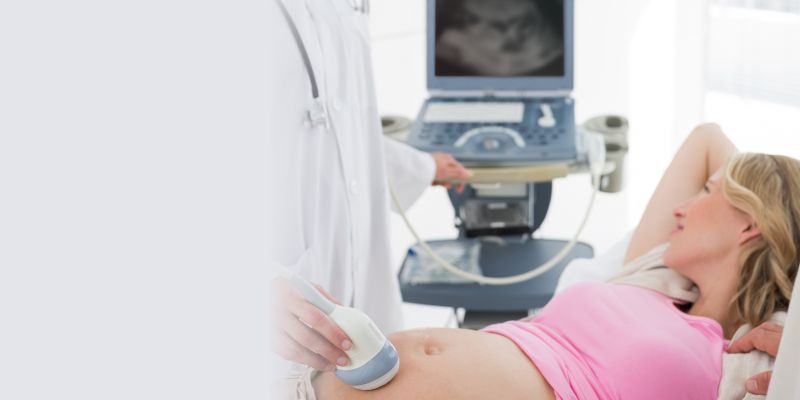
How can I get pregnant fast naturally?

The foods you prefer before you start your efforts towards conception may have a crucial role to play. These may be the conceiving foods determining your health and your baby's future health. A conceiving diet influences your fertility nutrition effectively and allows you to carry your pregnancy to term for a hale and hearty childbirth. Pregnancy care is a comprehensive subject that works best when you include every favourable toolkit in your lifestyle. The period spanning a few months before the conception is an ideal phase to review your diet. It's also an opportunity to make informed decisions towards an effective pregnancy.
Healthy pregnancy and weight:
Pregnancy starts with taking prenatal vitamins and a set of obstetrical guidelines. Constant and gradual weight gain achieved by combining informed decisions and conceiving foods is best for your health. Pregnancy is not an ideal time to lose weight.
Pre-conception nutrition:
Pre-conception nutrition forms a crucial part of pregnancy preparations. A diet that balances healthy vitamin and mineral levels improves ovulation, chances of fertility and boosts reproductive health. Nutritional interventions for a healthy pregnancy facilitate ideal weight, insulin resistance, hormonal balance and dietary richness.
Prenatal vitamins:
It's no longer a secret that a dietary regimen full of prenatal vitamins allow both mom and baby to thrive on the nutrients. However, it may not be advisable always to wait until you are pregnant. If you combine the right fertility vitamins, you will be pregnant in due course of time. Studies show the efficacy of fertility vitamins performing many functions apart from increasing the chances of pregnancy. Multivitamins are found to play a crucial role in increasing sperm parameters and enhancing egg quality. A cluster of multivitamins suffice. Nonetheless, a personalized approach is irreplaceable to optimize the overall health of you and your pregnancy. Therefore, your obstetrician may begin with a comprehensive analysis of the vitamins you need. Your obstetrician would guide you about the vitamins and their dosage.
- Folic acid and vitamin D:
It's ideal to start with multivitamins as you prepare yourself for a conception. If you are planning for a pregnancy, make sure you contain a multivitamin containing at least 400 mcg of folic acid and 200-400 IU of vitamin D.
- Iodine:
Iodine is one of the most important components of thyroid hormones. Thyroid hormones regulate the metabolism. Before conception, thyroid hormones control ovulation. They are also crucial in regulating metabolism and weight management. These factors influence the chances of natural conception. Include as much iodine as directed by your physician.
- Vitamin E:
Vitamin E helps various functions. Vitamin E is mainly associated with the repair of the cells. That's what makes it effective as a fertility booster. Being an essential nutrient for ovaries, it's also an antioxidant that resists the process of ageing.
- Selenium:
Many obstetricians call selenium a super-vitamin for fertility and pregnancy. Selenium harnesses its antioxidant properties that facilitate healthy uterine follicles. Uterine follicles harbour the development and release of the eggs. Studies show that acute selenium deficiency may lead to gestational complications, harm the foetal nervous system and cause miscarriages. 60mcg selenium is recommended. However, the amount may differ based on various parameters.
- Omega-3s:
Omega-3 fatty acids are some of the irreplaceable parts of a fertility diet. Studies demonstrate that omega-3s aid the function of healthy ovulation. Consuming DHA fatty acids may raise progesterone levels, a hormone controlling the lining in the uterus. DHA consumption is also linked to a decrease in anovulation.
- B Vitamins:
Every vitamin in group B aid the process of reproduction. Thiamine (B1), Riboflavin (B2), Pyridoxine (B6), Cyanocobalamin (B12) are the vitamins belonging to the B group. VitaminB6 regulates the levels of progesterone in the woman's body. It's crucial even in the improvement of the luteal phase. Therefore, it allows a proper time gap between ovulation and menstruation. That's why it contributes to a successful pregnancy. B group of vitamins are found abundantly in banana, clas, cauliflower, mustard greens, whole grains, chickpeas and eggs.
- Beta-Carotene:
Skin and hair depend mainly on vitamin A or retinol. Beta-carotene gets converted into Vitamin A. Beta-Carotene also plays a crucial role in healthy eyesight, proper immune function and mucous membranes. It acts as a hormone regulator in pregnancy thereby aiding the prevention of miscarriage. Carrots, sweet potatoes, broccoli and kale are some of the foods rich in Beta-Carotene.
- Exercise:
Joining a pregnancy exercise class apart from conceiving healthy foods is necessary to ensure the proper distribution of energy levels. Many experts recommend that physical activity of around 30 minutes to 1 hour/day is essential. You may achieve your ideal weight for fertility through various activities. Walking, swimming, bicycling and aerobics are some of the mild exercise techniques. Yoga shines out as an ideal way to start a day due to various health benefits. Yoga helps improve posture, respiration, concentration and overall wellbeing. All these are the essentials to facilitate healthy labour.?
Below are the foods to include as you start preparing for pregnancy:
- Green leafy vegetables:
Green leafy vegetables offer an abundance of vitamin C. Vitamin C contributes to healthy ovulation. It even cuts the risks like miscarriage and genetic abnormalities.
- Nuts and dry fruits:
Dried fruits and nuts contain vitamins, minerals and protein. Nuts are a rich source of selenium which helps prevent chromosomal disruptions in eggs.
- Berries:
Berries offer natural antioxidants and anti-inflammatory phytonutrients thereby boosting fertility levels. They also offer vitamin C and folate which aid in foetal development. Being an active ingredient helping in weight loss, including berries in the diet is highly beneficial.
- Beans:
Beans contain iron and lean protein. Iron is essential for the production of healthy eggs. It may lead to the production of less healthy eggs in response to abysmal iron content.
- Bananas:
Bananas are a rich source of vitamin B6. They also contribute to the process of forming a zygote by controlling the hormones involved in ovulation. Being a rich source of potassium and vitamin C, bananas may help satiate many nutritional requirements before and during pregnancy.
Below are some quick recommendations for a healthy pregnancy:
- Enjoy milk every day.
- Prefer carbohydrates with high fibre content. They get digested slowly thereby aiding the control of blood sugar and insulin levels.
- Based on your obstetrician's opinion, take multivitamins that provide you 400mcg of folic acid every day.
- Replace animal protein with plant protein.
- Replace trans fats with something healthier as directed by your obstetrician.
- Include high doses of unsaturated fats aiding a good insulin sensitivity and counteract inflammation. Restrict or remove saturated fats.
- Women willing to conceive should include 400mcg of folic acid regularly.
- You may consider obtaining fortified foods or supplements apart from including foods rich in folate.
- Drink more water and replace sugary sodas possibly causing infertility.
- Make sure that you perform physical activities within your comfort zone preferably every morning.
Related Blogs

Benefits of Consuming Folic Acid Tablets For Pregnancy/During Pregnancy
Read More
Navigating Radiology: Ensuring Safe Imaging During Pregnancy
Read More
Navigating Radiological Tests During Pregnancy: Ensuring Safety for Mother and Child
Read More
Decoding the Wonders of Pregnancy: When and Why Ultrasound Scans Take Center Stage
Read More
Decoding the Wonders of Doppler Ultrasound in Pregnancy: A Radiologist's Perspective
Read More
Understanding Cervical Cancer: The Crucial Role of Early Preventive Health Checks
Read More
I Am Very Fortunate: Embracing the Gift of Parenthood with Motherhood Fertility and IVF
Read More
Navigating Infertility - A Roadmap to Hope and Parenthood
Read More
Understanding the Menopause Journey - Embracing Change with Confidence
Read More
Women and Heart Health - Recognizing Risk Factors and Prioritizing Prevention
Read MoreLeave a Comment:
View Comments
Previous
Next
HELLO,
Stay update don our latest packages, offer, news, new launches, and more. Enter your email to subscribe to our news letter


 Toll Free Number
Toll Free Number







No comment yet, add your voice below!